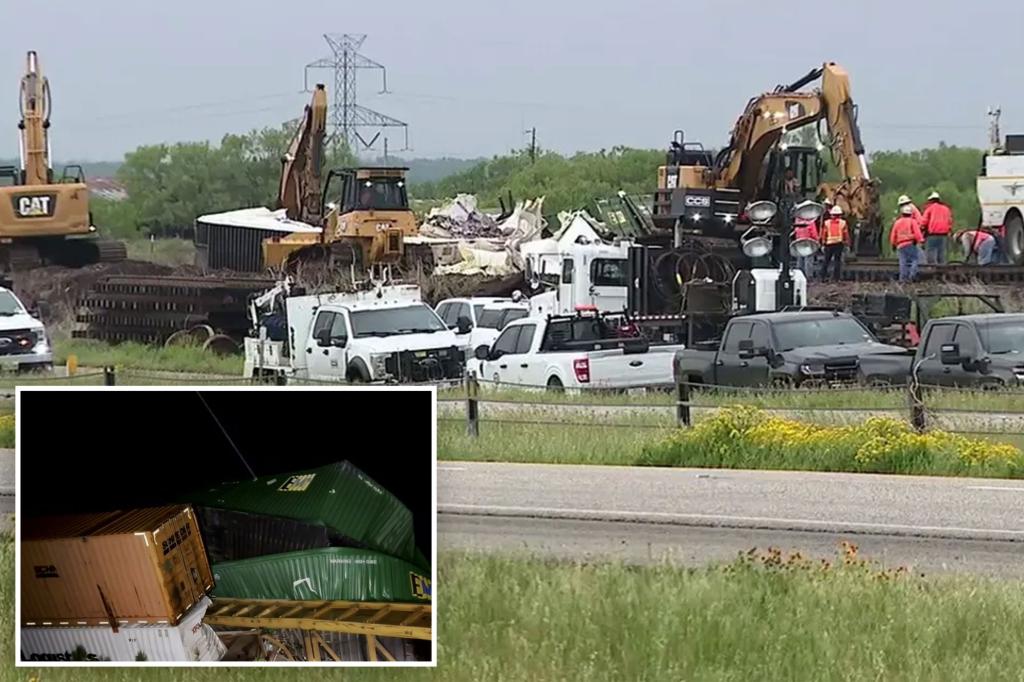A train derailment occurred in West Texas as severe storms moved through the area, causing about 24 rail cars to derail on a Union Pacific train east of Trent around 8 p.m. CDT. Fortunately, no injuries were reported as a result of the incident. Union Pacific crews are currently working to clear the area, and an investigation into the derailment is underway to determine the exact cause.
Officials from the National Weather Service office in San Angelo, Texas, indicated that based on Doppler radar data, they believe that straight-line winds were responsible for causing the derailment. A local storm report issued by the office estimated an 80-mph wind gust at the time of the incident, which may have contributed to the train derailment. Severe weather conditions, including strong winds, can pose a significant risk to transportation infrastructure, as demonstrated by this incident.
The National Weather Service is closely monitoring weather conditions and providing updates on severe weather events that may impact various regions, including West Texas. Storms with strong winds, lightning, and heavy rainfall can create hazardous conditions for transportation systems such as trains and highways. It is essential for transportation officials to take appropriate measures to ensure the safety of passengers and cargo during severe weather events.
As Union Pacific works to clear the derailment site and investigate the incident further, they are taking necessary precautions to prevent similar incidents from occurring in the future. This includes reviewing safety protocols, maintenance procedures, and weather monitoring systems to better predict and respond to severe weather events that could impact railroad operations. By enhancing safety measures and preparedness, transportation companies can mitigate the risks associated with severe weather and minimize the potential impact on infrastructure and public safety.
Storm-related incidents like train derailments serve as a reminder of the importance of disaster preparedness and response planning for transportation authorities and emergency management agencies. Severe weather events can disrupt transportation networks, resulting in delays, damage, and potential injuries if safety protocols are not followed. By coordinating efforts between weather forecasters, transportation operators, and emergency responders, it is possible to improve resilience to extreme weather events and reduce the impact on critical infrastructure.
In the aftermath of the train derailment in West Texas, continued collaboration between Union Pacific, the National Weather Service, and other relevant agencies will be crucial for assessing the incident, implementing improvements, and enhancing safety measures for future storms. By learning from past events and working together to address vulnerabilities in the transportation system, stakeholders can build a more resilient infrastructure that is better equipped to withstand the challenges of severe weather conditions. Through ongoing monitoring, planning, and coordination, the transportation sector can adapt to changing weather patterns and ensure the safety and efficiency of operations in West Texas and beyond.


